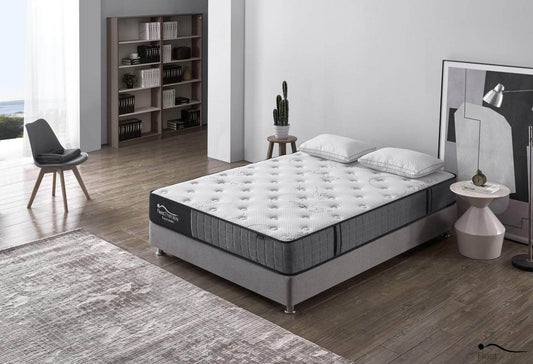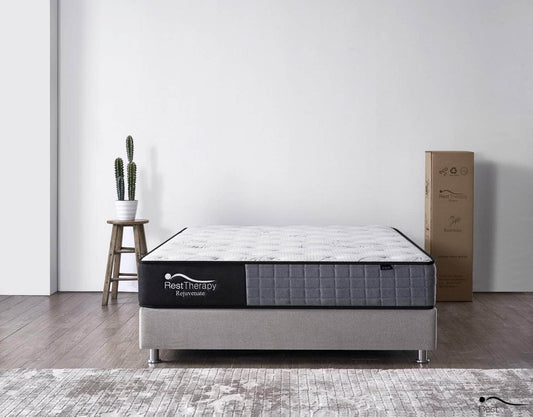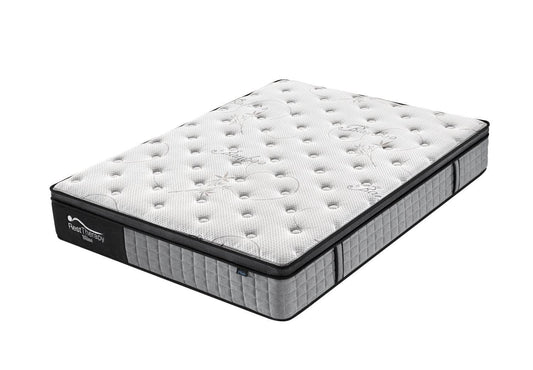Mattresses
-
8 Inch Serenity Bamboo Memory Foam Mattress - Available in 4 Sizes
Regular price From $349.95 CADRegular priceUnit price / per$899.00 CADSale price From $349.95 CADSale -
10 Inch Renew Bamboo Cool Gel Memory Foam Mattress - Available in 4 Sizes
Regular price From $449.95 CADRegular priceUnit price / per$1,099.00 CADSale price From $449.95 CADSale -
12 Inch Revive Bamboo Cool Gel Memory Foam Mattress - Available in 3 Sizes
Regular price From $799.95 CADRegular priceUnit price / per$1,799.00 CADSale price From $799.95 CADSale -
10 Inch Rejuvenate Bamboo Pocket Coil Mattress - Available in 4 Sizes
Regular price From $399.95 CADRegular priceUnit price / per$999.00 CADSale price From $399.95 CADSale -
12 Inch Bliss Bamboo Plush Hybrid Pocket Coil Mattress with Cool Gel Memory Foam - Available in 4 Sizes
Regular price From $499.95 CADRegular priceUnit price / per$1,199.00 CADSale price From $499.95 CADSale -
6 Inch Exhilarate Tri Fold Bamboo Cool Gel Memory Foam Mattress - Available in 3 Sizes
Regular price From $399.95 CADRegular priceUnit price / per$999.00 CADSale price From $399.95 CADSale -
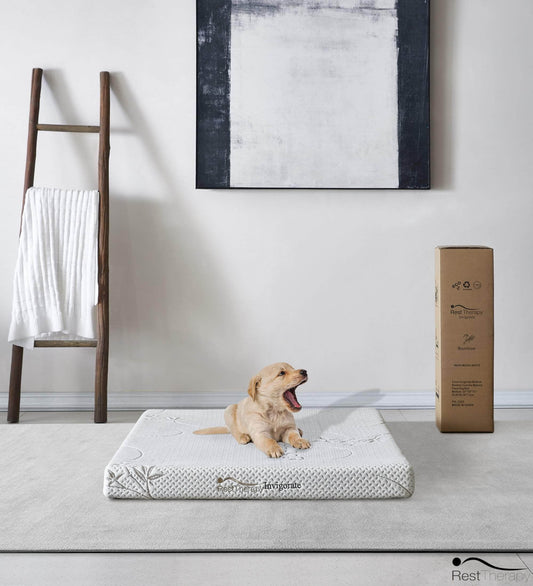
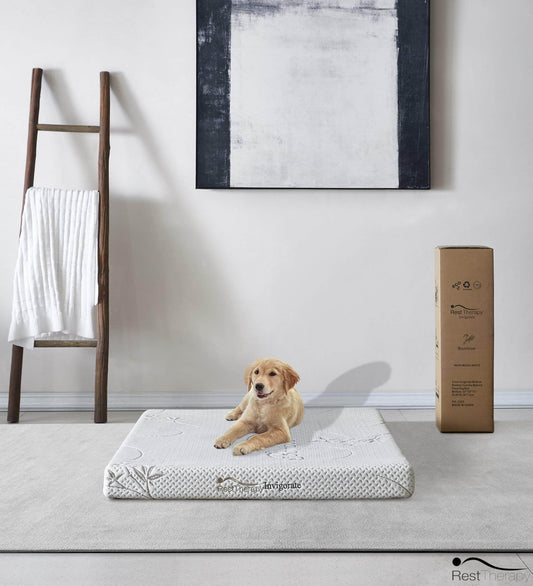
3 Inch Invigorate Bamboo Cool Gel Memory Foam Dog or Cat Bed Pet Mattress - Available in 3 Sizes
Regular price From $99.95 CADRegular priceUnit price / per$299.00 CADSale price From $99.95 CADSale -
Twin, Full, Queen, or King Size Bed Mattresses
Regular price From $349.95 CADRegular priceUnit price / per$799.00 CADSale price From $349.95 CADSale
Collection: Mattresses
How Can I Choose a Mattress for a Murphy Bed?
Selecting the right mattress for your Murphy bed is essential for ensuring a smooth and comfortable sleep experience while allowing the bed to fold away easily. The mattress you choose will depend on the type of Murphy bed you own—whether it's a wall bed or a cabinet bed. For wall beds, traditional mattresses like memory foam or pocket coil mattresses are perfect, whereas cabinet beds require folded mattresses, such as tri-fold memory foam models.
One of the most important factors to consider when selecting a mattress is that it must fit properly inside the frame of your Murphy bed when it is closed. A mattress that is too large or thick can interfere with the bed's folding mechanism, preventing it from operating smoothly. For both wall beds and cabinet beds, it's crucial to measure your bed frame and ensure the mattress fits snugly, providing enough clearance for the bed to be folded up without obstruction.
What Thickness of Mattress Should I Use for a Murphy Bed?
The thickness of the mattress plays an important role in the function and comfort of your Murphy bed. The ideal mattress thickness varies based on whether you have a wall bed or a cabinet bed:
- Wall Beds – Wall beds can accommodate traditional mattresses, but they should be within a certain thickness to ensure proper functionality. Memory foam or pocket coil mattresses for twin, full, and queen size wall beds generally work best when they are between 8 to 10 inches thick. A mattress that is too thick may cause issues with the bed closing properly, while one that’s too thin might not offer adequate comfort. It's essential to select a mattress that fits within the bed's frame to ensure that the bed can be folded and stored with ease.
- Cabinet Beds – Cabinet beds use folded mattresses, typically made of memory foam. These mattresses are designed in a tri-fold style, making them easy to store and unfold. The thickness of tri-fold memory foam mattresses is usually between 6 to 8 inches, which ensures that the bed can be easily folded and stored within the cabinet without adding unnecessary bulk.
For both wall beds and cabinet beds, it’s crucial to pick a mattress that fits well within the bed frame, so the mattress doesn’t interfere with the mechanism when the bed is stored away.
What’s the Difference Between Memory Foam and Pocket Coil Mattresses?
Both memory foam and pocket coil mattresses are great options for Murphy beds, but they provide different types of comfort and support. Here's a breakdown of their differences:
- Memory Foam Mattresses – Memory foam conforms to your body shape, offering pressure relief and support exactly where it’s needed. This makes it ideal for those with back or joint pain. For Murphy beds, memory foam is lightweight, flexible, and perfect for both wall beds and cabinet beds, as it can fold easily and still provide exceptional comfort.
- Pocket Coil Mattresses – Pocket coil mattresses are made with individual coils wrapped in fabric pockets, allowing each coil to move independently. This provides excellent support and minimizes motion transfer, which is beneficial if two people are using the bed. While pocket coil mattresses are typically heavier and more rigid than memory foam, they still offer great support in Murphy wall beds, ensuring a firm, traditional sleep experience.
When choosing between memory foam and pocket coil mattresses, consider your personal comfort preferences. Memory foam is great for a softer, body-conforming sleep, while pocket coil mattresses offer firmer support and a more traditional feel. Be sure to select the mattress that fits properly within your Murphy bed to ensure both comfort and functionality.
Choosing the right mattress for your Murphy bed ensures that the bed functions smoothly and provides the best sleep experience. Whether you opt for a memory foam or pocket coil mattress, make sure it fits within the bed frame when the Murphy bed is closed, so it operates as designed.







